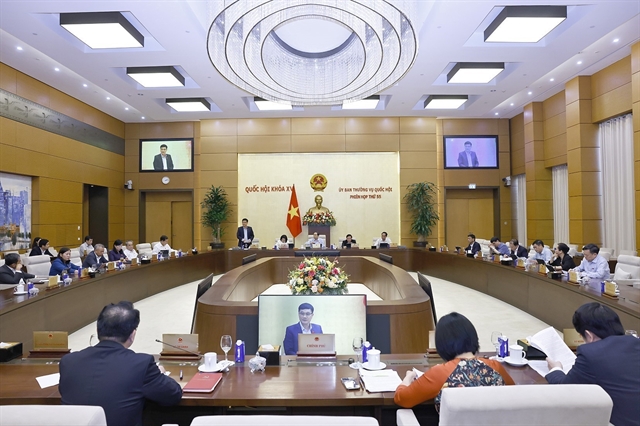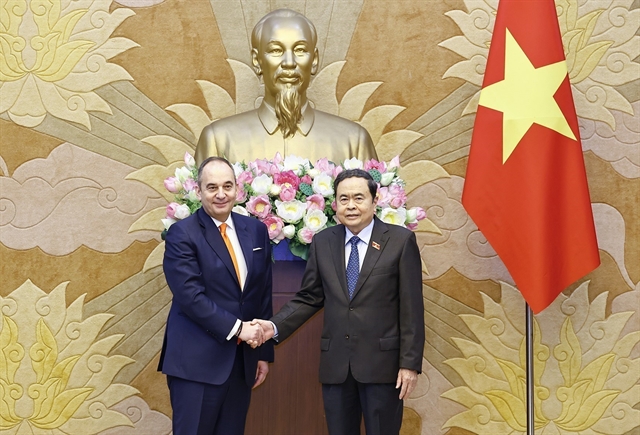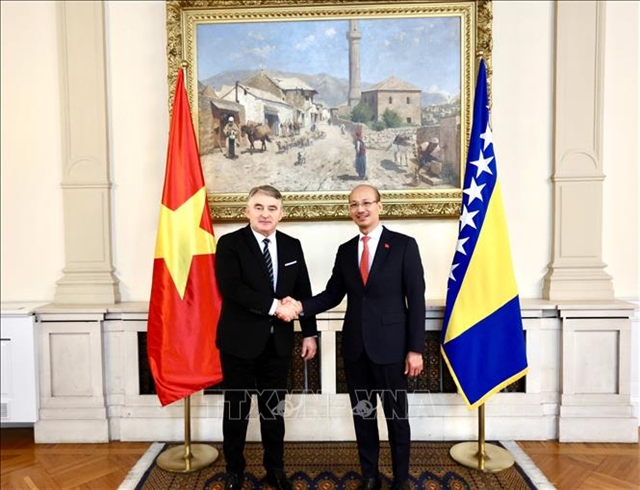 Society
Society
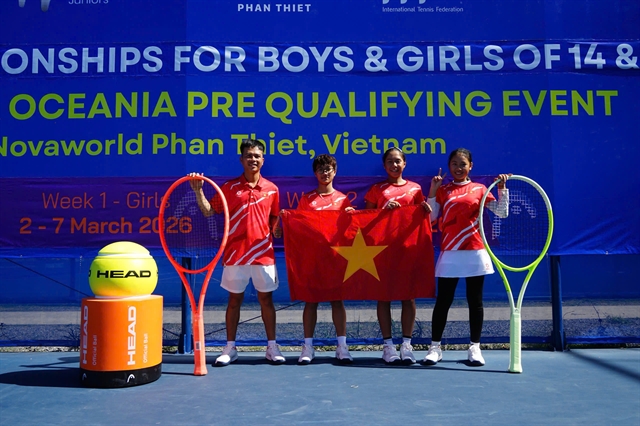
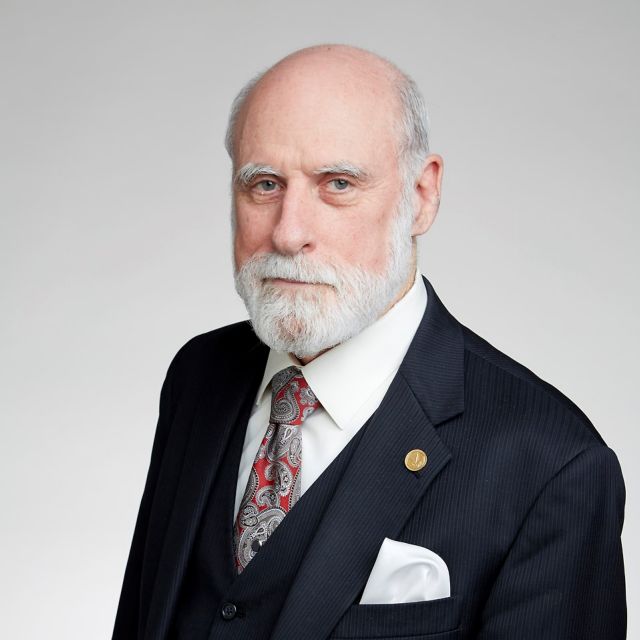 |
| Dr. Vinton Gray Cerf. Photo amacad.org |
Dr Vinton Gray Cerf recently won the US$3 million grand prize at the VinFuture Prize Awards in December 2022 for his work in making global network technology a reality. This led to the design and implementation of the Transmission Control Protocol and Internet Protocol (TCP/IP), which is the basis for the functioning of our internet today. Dr Cerf speaks to Việt Nam News about the future of the internet.
Over the years, the internet has developed rapidly. Was it like how you imagined when you started developing protocols like the Transmission Control Protocol and Internet Protocol? If yes, how? And if not, how? Is there anything that you wished was different?
The internet began as an exploration of the use of computers in command and control. An earlier project called the Arpanet had successfully shown that it was possible to connect different brands of computers through a uniform packet-switched network. That project introduced networked electronic mail (“email”), remote access to time-sharing computer systems and file transfers between computers.
The internetting project extended this idea to include mobile wireless computer networks and satellite networks. In 1983, the internet was made operational for people involved in US Defense department research and operational activities. The teams of people developing the internet and subsequent researchers who used it for academic and scientific pursuits demonstrated how useful it was to share software and computing resources.
With the arrival of the World Wide Web in 1991 and the commercialisation of internet services, the general public and private sectors found a myriad of ways to use this technology in business and social settings. Like many who worked on the project from the beginning, its potential was revealed in increments. I am not sure we could have predicted everything that has happened, although much of what we see today was nascent even 50 years ago. What is probably most apparent is the “dual use” nature of the Internet. It can be used for very productive and also for very harmful purposes.
We now see that it is important to provide guardrails to inhibit bad behaviours. It is also evident that international cooperation will be needed to hold parties accountable when they behave badly. I would like to see more use of safe networking practices (such as two-factor authentication) and the use of cryptography to protect information from inappropriate access or release.
With the enormous amount of information already on the internet and more coming daily, we need better tools and skills to distinguish quality information from dross. Just as we require our young people to qualify to drive cars by taking classes in safe driving and passing driving tests, maybe we need an analogue in the form of an “internet driver’s license” that teaches everyone how to think more critically about what they see and hear. That’s helpful for all media, not just the internet and World Wide Web.
People have been discussing the internet's good and bad sides in many debates. You have also said that many unfinished aspects of the internet need attention, including safety, security, privacy, and accessibility. Are you working on these aspects, and how far have you gone?
Yes, I think we are becoming dangerously dependent on the successful operation of computer-based technology and on the internet and its applications, especially in the form of smartphones and their “apps”, and we need to learn how to build into this digital ecosystem a substantial amount of resilience.
When our smartphones are unavailable or we can’t get a signal, our dependence on these functions can lead to cascade failures. One problem generates new problems in a sequence. We need to see the internet as a vital infrastructure and improve its resilience and reliability. We also need to defend it against various attacks and design our software to be less vulnerable to harmful hacking.
The power of networked computing is, by this time, indisputable, but that reinforces the importance of ensuring that it is reliably available at need. There is a lot of good work on so-called “zero trust” architectures in which access to a particular network does not confer any rights or authority to the user. Further strong authentication of users and their devices must be required to achieve the level of protection desired.
Could you elaborate on the “digital dark age” you mentioned you are worried about?
My major concern is that information in a digital form typically requires software to render it or to facilitate interactions with it (think spreadsheets, video games, text editors, photo editors, etc). Over time, it is possible that the formats for digital data will change and that the software needed for older formats will no longer run on the operating systems of the day. If that happens, digital content relying on these applications may no longer be usefully accessible. One can imagine that massive amounts of digital information may be lost 100 years later, not because the storage media is gone, but because we no longer have software that understands what the data means.
We can now develop computers to do many specific things, from playing chess to creating artwork or acting as robot lawyers. Will they ever be able to think like human beings? People are also worried about having their jobs taken away. What do you think?
I am still very sceptical about general artificial intelligence. While there have been impressive examples of programmes that can learn to play board games and even video games as well or better than humans, these capabilities are based on a narrow concept of statistical machine learning.
Even the extremely impressive Alphafold program from Deep Mind required a substantial amount of manual adjustment with factual information from physical chemistry to achieve its ability to predict the folding of proteins. Until programs can extract predictive models of how the world works from direct interaction with the real world or through some kind of knowledge exchange with humans who have real-world experience, I think present AI systems will have limited capacity for problem-solving.
I do think some jobs will be taken away, but new ones will arise. The challenge for people will be to learn how to do new jobs.
Việt Nam is still in the state of a developing country. Would new technology widen the gap between rich and poor countries? How can we benefit more from AI/new technology, and how can we close the gap?
It is certainly arguable that technology will continue to evolve, and the leading edge is often expensive and out of reach of the general public or private sector. However, history tells us that technologies have become commodified, which will also be true for digital technology.
Consider the big, expensive mainframes of the past - now we have their power in our pockets or pocketbooks. Consider printing presses and the fact that many people have laser printers in their homes now. Medical instrumentation is also downsizing and becoming more common at home in support of remote medical care. I think the basic trend is that the gap will close with time.
People have gone quite far in the field of science and technology. What are your predictions for the year 2023? What will be next in the coming five or ten years?
There is no doubt that there will be heavy investment in machine learning and “AI” during 2023 and beyond. The so-called Internet of Things will continue to evolve. Increasing the capability to interact by voice, to translate between written and spoken languages and to accommodate people with disabilities will enhance the utility of computer-based systems. Humanity is returning to the Moon and going to Mars. Space is once again an addressable frontier. I am excited about the progress in computation applied to many disciplines: personalized medicine, computational linguistics, computational botany and biology, computational physics and chemistry and more. Science is being transformed with new computational and measurement capabilities (think about LIGO and the James Webb Space Telescope, for examples). There could not be a more exciting time to be involved in computational everything! VNS

